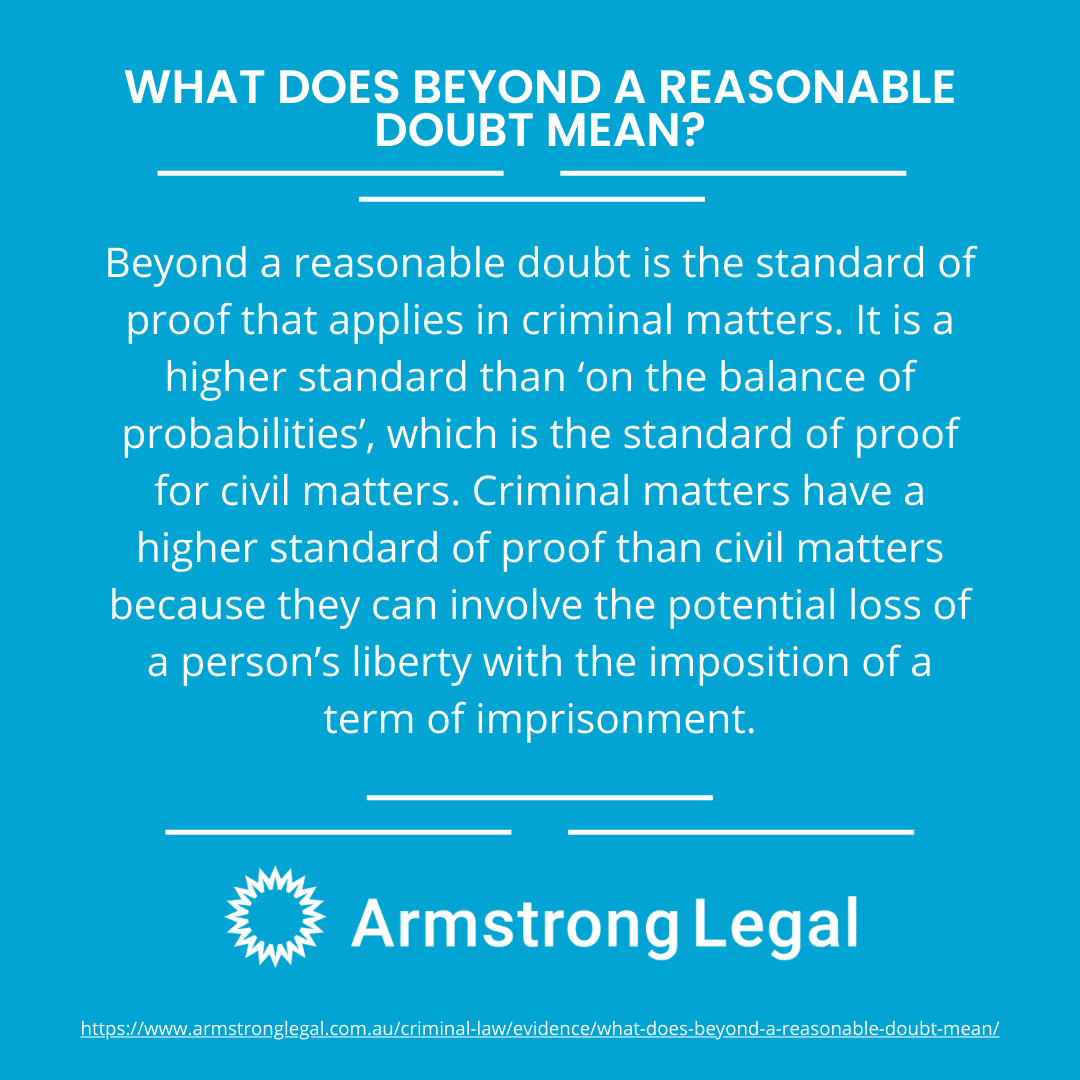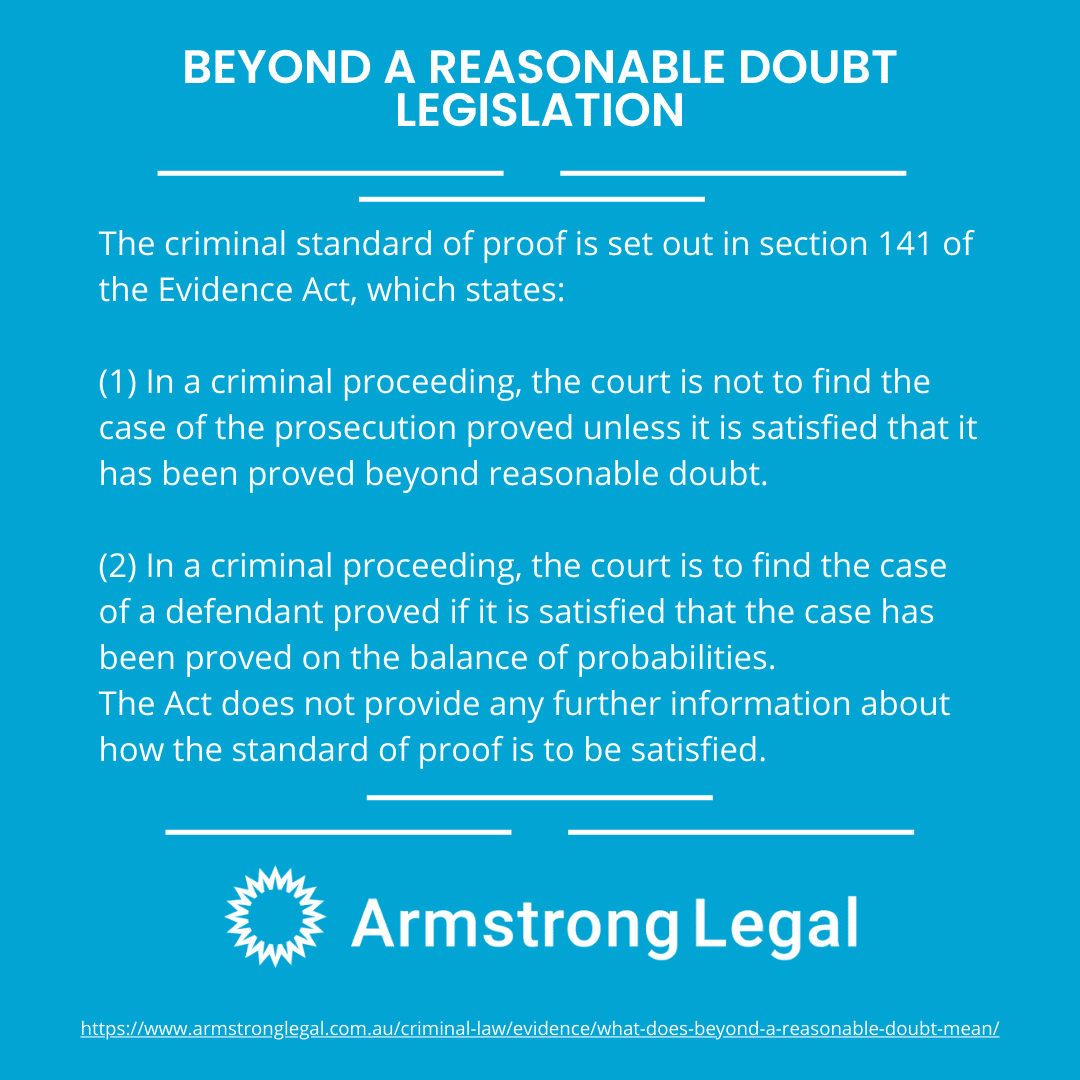What Does Beyond a Reasonable Doubt Mean?
Beyond a reasonable doubt is the standard of proof that applies in criminal matters. It is a higher standard than ‘on the balance of probabilities’, which is the standard of proof for civil matters. Criminal matters have a higher standard of proof than civil matters because they can involve the potential loss of a person’s liberty with the imposition of a term of imprisonment.
It is worth noting that where an accused advances a defence, the defence must be proved only to the civil standard of proof (on the balance of probabilities).
The presumption of innocence
The presumption of innocence is the most fundamental principle of the criminal justice system. It is a human right, which is enshrined in the International Covenant on Civil and Political Rights. It means that the prosecution in criminal matters bears the burden of proving the accused is guilty of the offences charged beyond a reasonable doubt. It is not the defendant’s responsibility to prove that they are not guilty.
To prove the defendant is guilty, the prosecution must adduce admissible evidence before the court proving beyond a reasonable doubt that every element of the offence has been made out. Depending on the offence charged, this may include physical acts as well as a mental state, such as intention or recklessness.
Under the presumption of innocence, a person cannot be found guilty unless there is no reasonable alternative hypothesis that can be put forward that is consistent with their innocence. There must be no reasonable doubt in the mind of the decision-maker (magistrate, judge or jury) that the person is guilty.
Although the court must be satisfied beyond a reasonable doubt that the accused is guilty, this does not mean that there can be no doubt whatsoever. However, any lingering doubt must be found to be unreasonable in order for the standard of proof to be fulfilled.
Legislation
The criminal standard of proof is set out in section 141 of the Evidence Act, which states:
(1) In a criminal proceeding, the court is not to find the case of the prosecution proved unless it is satisfied that it has been proved beyond reasonable doubt.
(2) In a criminal proceeding, the court is to find the case of a defendant proved if it is satisfied that the case has been proved on the balance of probabilities.
The Act does not provide any further information about how the standard of proof is to be satisfied.
Is reasonable doubt a defence?
Yes. Raising reasonable doubt can often be enough to prevent the prosecution from proving its case beyond a reasonable doubt. The defence does not have to prove that the accused did not commit the crime, but only show that there is a reasonable possibility that he or she did not do so.
Who decides if the accused is guilty beyond a reasonable doubt?
It is up to the decision-maker (a magistrate in the summary jurisdiction and a jury in indictable matters) to decide whether the prosecution has proven its case beyond a reasonable doubt.
Whether there is reasonable doubt is a highly subjective test. Different individuals have different ideas of what is reasonable. At times the defence may feel that an innocent person has been convicted and at time the prosecution may believe that a guilty person escaped punishment. When this happens, a party may lodge an appeal against the court’s decision.
Why do we require guilt to be proven beyond a reasonable doubt?
Having a high criminal standard of proof means that it is more likely that a guilty person will be acquitted than that an innocent person will be found guilty. The criminal justice system is premised on the idea that is it better for a guilty person to go free than for an innocent person to be found guilty.
If you require legal advice or representation in any legal matter, please contact Armstrong Legal.

This article was written by Fernanda Dahlstrom
Fernanda Dahlstrom has a Bachelor of Laws, a Bachelor of Arts and a Graduate Diploma in Legal Practice. She has also completed a Master’s in Writing and Literature. Fernanda practised law for eight years, working in criminal defence, child protection and domestic violence law in the Northern Territory and in family law in Queensland.



